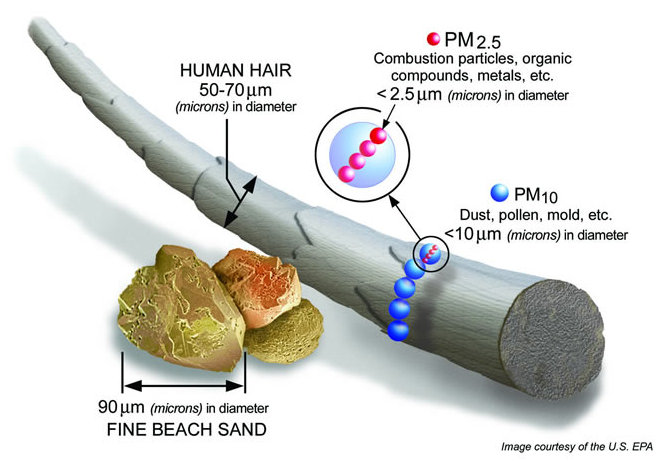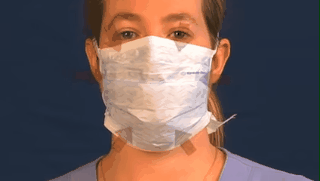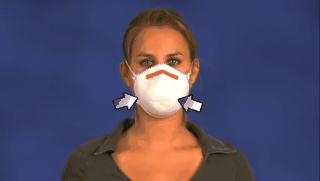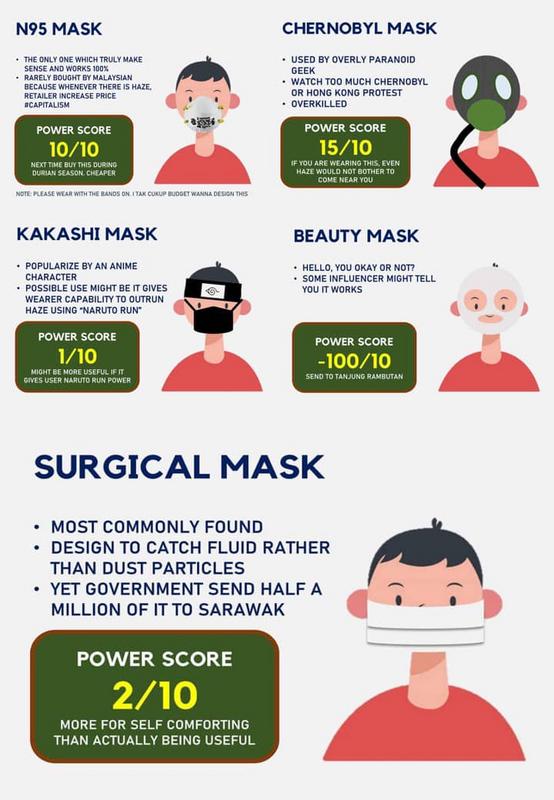3 Reasons Why You Should Mask Up When It's Hazy, Even Though It's 'Mah Fan'
An N95 mask is your safest bet the next time it's hazy.
The haze in Malaysia just doesn't seem to be going away anytime soon
And at this point, many Malaysians, including this writer, are absolutely done with having to face the effects of the haze coming from the forest fires in Indonesia.
With that said, it is still important to protect ourselves from the worsening air quality. And for which, an N95 mask is your safest bet the next time you are leaving the house. Here's why:
1. The really tiny airborne particles causing the haze can damage both your lungs and heart
According to the National Environment Agency of Singapore, PM2.5 is the dominant pollutant during haze episodes.
PM2.5 refers to airborne particulate matter (PM) that have a diameter of less than 2.5 micrometers, which is about 30 times smaller than the diameter of a human hair, as stated by the United States Environmental Protection Agency (EPA).
According to the US agency, numerous scientific studies have linked exposure to PM2.5 particle pollution to a variety of problems, including:
- increased respiratory symptoms, such as irritation of the airways, coughing, or difficulty breathing,
- decreased lung function,
- aggravated asthma,
- episodes of irregular heartbeats,
- nonfatal heart attacks, and
- premature death in people with heart or lung disease.
People with previously known heart or lung diseases, children, and the elderly are the most likely to be affected by particle pollution exposure.
2. Although it may be more comfortable, the surgical mask is NOT effective in protecting against the haze
According to the United States Centers for Disease Control and Prevention (CDC), surgical masks are not designed for use as particulate respirators and do not provide as much respiratory protection as the N95 respirator.
Surgical masks — often worn in operation theatres — are made to provide barrier protection against droplets such as splashes or sprays of blood, body fluids, secretions, and excretions from reaching the wearer's mouth and nose.
Most surgical masks do not effectively filter small particles from the air and do not prevent leakage around the edge of the mask when the user inhales.
During inhalation, small airborne contaminants can pass through gaps between the face and the surgical face mask, as well as the material of the mask.
Image via YouTube3. The N95 is designed to protect its wearer from hazardous airborne particles and dust
The N95 is not just any face mask. According to the CDC, N95 respirators are manufactured for use in construction and industrial jobs that expose workers to hazardous airborne particles and dust.
These respirators are recommended and regulated by the National Institute for Occupational Safety and Health (NIOSH), which is part of the CDC.
As indicated in its name, the N95 respirator is certified to block 95% of very small (0.3 micrometers) airborne particles, which means it is definitely effective against the PM2.5 particles found in the haze!
The respirator has to have a tight seal all the way around your face when you inhale so that you only breathe in purified air through the filter, not the contaminated air that leaks around the edges of the mask.
A proper seal forces inhaled air to be pulled through the respirator's filter and not through gaps between your face and the mask.
Image via YouTubeIt is, however, important to note that breathing in through a respirator filter is harder than breathing in open air
Therefore, people with chronic lung and heart conditions or general difficulty in breathing should check with their healthcare provider before using an N95 respirator.
Meanwhile, if you still think that a surgical mask might be more effective, here's a fun infographic by Twitter user @akmalarief that sheds more light on the myth:
The Domestic Trade and Consumer Affairs Ministry has set a ceiling price to stop traders from hiking prices of face masks up unreasonably.
The maximum price fixed for the N95 mask is RM100/box or RM6/unit.




